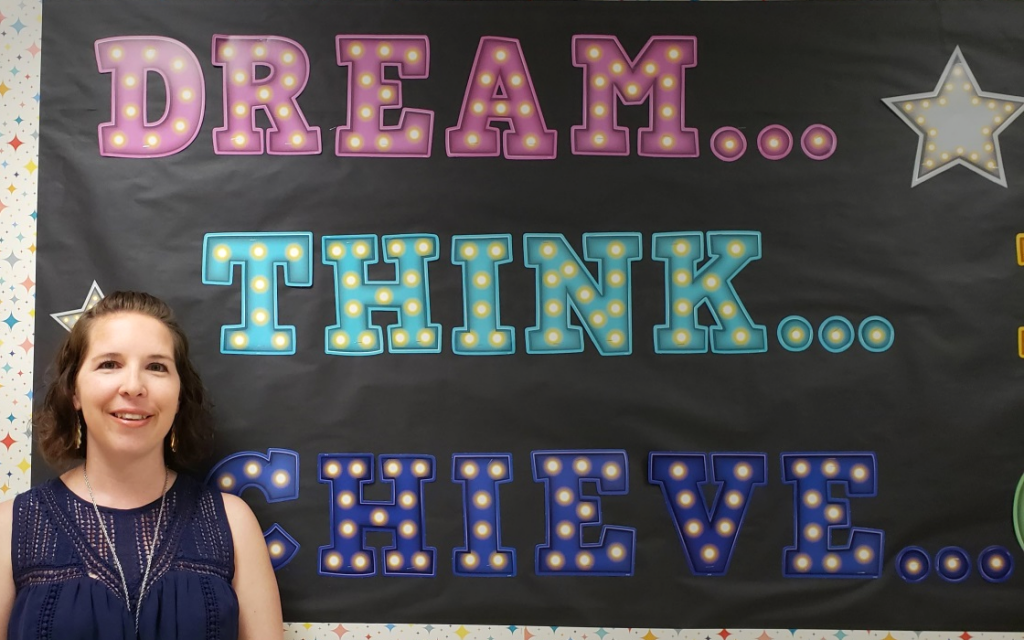
Erica Sommer is a special education teacher in Del Valle Independent School District, which serves students in and around Austin, Texas.
Sommer works closely with the district’s substantial English learner population, has almost 15 years of teaching experience and has been passionate about teaching for as long as she remembers. She shared with us how working with English learner students and those with disabilities has impacted her as a teacher and individual.
English learners make up one of the most diverse student groups in schools today. When English learners enter our schools, they come from varying racial, ethnic, linguistic, socio-economic, educational, and cultural backgrounds. Serving the needs of English learner students, particularly those identified as having a disability, can be a challenge for schools and teachers, but it is also an interesting and exciting group of students to teach and learn from.
I have had many unique opportunities to work with English learners who are also students with disabilities both at the very beginning of my career in Kansas City, Kansas and now, as I work with students in and around Austin, Texas.
In Kansas City, I worked with English learner students with disabilities who were part of a public-private school partnership in the district.
In my current school district, bilingual students make up about 87 percent of the student population, and about 60 percent of those students are English learners. I really enjoy this work, especially the relationships I’m able to build with individual students and their families.
Over the past two years, I’ve been working with a young English learner with learning disabilities including dyslexia. She has been such an inspiration to me. She is the hardest working student I’ve ever worked with, and I can’t wait to get invited to her high school graduation!
Teaching English learners with disabilities is of course challenging at times, but those challenges become learning experiences. I have found several strategies that work well when facing challenges in my work.
- I learned to ask for help when communicating with parents. This sometimes requires getting a translator, and these situations have helped me to develop another skill, which is to learn how to communicate effectively while using a translator.
- I have learned to be flexible and open to change.
- I have learned the importance of connecting with classroom teachers and advocating for my students. I work with bilingual teachers and mainstream teachers in settings that are more collaborative and less formal than an official individualized education program team or planning meetings. What we do is more about coordinating our work and sharing professional development opportunities and information. We work together like this because we know it will make our jobs easier and ultimately benefit of our students.
I think that the best way teachers and schools can help English learners, students with disabilities and all kids is by working with their parents. Reach out and learn how to effectively communicate with parents of English learners because this can be absolutely crucial to a child’s success in school. We, as teachers, can be someone who influences our students’ whole trajectory in life.
The most rewarding part of my work with English learners with disabilities is actually saying goodbye to my fifth graders, and knowing they have so much more to do and accomplish! These students make a big impact on me as an individual, especially those who are particularly surprising and the most challenging. I often find that my students who seem tough and rugged throughout the year are the same students who cry and hug me on the last day of school.
Blog articles provide insights on the activities of schools, programs, grantees, and other education stakeholders to promote continuing discussion of educational innovation and reform. Articles do not endorse any educational product, service, curriculum or pedagogy.


I am wanting to know a list of universities in texas were my daughter who is adhd can attend and actually get a degree. Universities with great support. Thanks
How can I stay in touch after following you on your blog? I am an RSP teacher in a 90% latino charter school. We struggle with over-identification of latinos in special education. It became a charter after consistent low performance. I am the new case manager as of April 2019 with 3rd and 5th graders that are non-readers. Its a very specific situation and I’m not a reading specialist. I desperately want them to progress and have success in their reading instruction. I appreciate your article and would love to know more about strategies, interventions and any advice you could give
Thank you, Erica! What an encouraging story and great information. As a future ESL teacher, I am very encouraged by your advice.
I am so lucky to have Erica serving our students at Gilbert Elementary. She is always an advocate for putting students’ needs first. We have a large population of EL Sped students and she does a wonderful job!
Great job, Erica! So proud of you.
I am so proud of you and what you have accomplished in teaching I am very proud to call you my daughter.